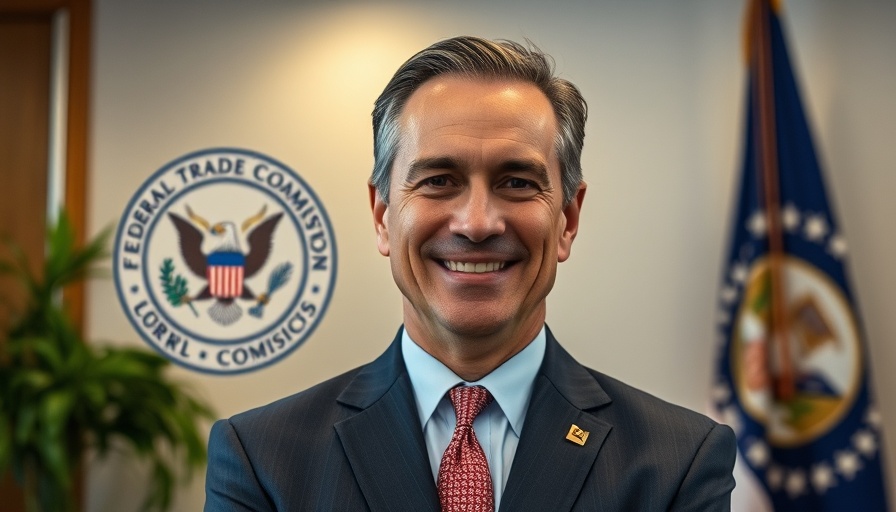
Andrew Ferguson's Swift Changes at the FTC: What It Means for Industries
With a new era ushered in by President Trump's designation, Andrew Ferguson's rapid reforms at the Federal Trade Commission (FTC) have sent ripples through the business community. Within just days of taking office, Ferguson has laid out a clear vision that aims to reshape how regulatory practices are conducted in America.
A Shift Back Towards Traditional Values
Upon his official appointment, Ferguson expressed his intent to break away from the policies of the Biden administration, which he claims have negatively impacted American equality and business practices. He articulated that DEI (Diversity, Equity, and Inclusion) initiatives have created divisions rather than unity. "DEI is a scourge on our institutions," Ferguson declared, asserting that equality should be truly merit-based and devoid of biases associated with race or gender.
Key Changes Implemented at the FTC
Ferguson's immediate actions illustrate his commitment to dismantling DEI-related programs at the FTC. The closure of the Office of Workplace Inclusivity and Opportunity has raised eyebrows, reflecting a broader agenda to cut ties with what some view as politically motivated initiatives. The termination of the Diversity Council, removal of DEI materials from FTC web platforms, and a mandate for extensive internal audits position Ferguson as a figure intent on reshaping the commission's identity.
Implications for the Business Community
For dealership owners and general managers, these changes may signal a return to more familiar regulatory frameworks. The business landscape often reacts swiftly to regulatory shifts, particularly those impacting equality standards in hiring and procurement. As Ferguson continues to implement policies that emphasize merit over demographic considerations, industry leaders may find new opportunities for expansion and growth without the complex frameworks of DEI to navigate.
The Bigger Picture: DEI in Corporate America
Ferguson’s actions represent a critical viewpoint in the broader conversation around DEI initiatives across the U.S. Numerous corporations have integrated DEI policies over recent years, often citing them as essential for fostering inclusive workplace cultures. However, with a significant regulatory body like the FTC now reversing course, companies may need to evaluate their own DEI strategies and reconsider their alignment with current federal policies.
Future Predictions: A Regulatory Shift
As Ferguson's tenure progresses, many are watching closely to see how these principles will manifest not only at the FTC but across other federal agencies. Will this move create a ripple effect in how companies strategize their workforce initiatives? The outcome remains uncertain, but the potential for increased scrutiny on DEI initiatives is more pronounced than ever.
In conclusion, Ferguson's decisive actions at the FTC suggest a critical pivot in regulatory philosophy concerning diversity and inclusion. For businesses, this could mean a tangible shift in how compliance and hiring practices are approached, leading to an advantageous landscape for those emphasizing experience and performance.
 Add Row
Add Row  Add
Add 




Write A Comment